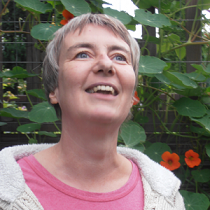Roads GRP
If you communicate with others non-violently, especially as a beginner, you might hear:
"Why are you talking so funny?"
Marshall Rosenberg answered his son this question: "Should I rather decide on you as before?" to which the son denied. Another way of reacting is to empathically empathize with your counterpart. Perhaps your answer takes too long, so there is a need for effectiveness behind it? If your counterpart feels understood, he will be better off and he may be more patient. Especially if you additionally explain why it is important for you to practice the CSFs.
We encounter a difficulty in formulating needs. On the one hand, they are formulated in general rather than in person (see Chapter 4). In this way, we ensure that the need is not focused on one person, but can basically be met by different people. On the other hand, sentences like "Are you frustrated because you care about justice?" sound strange and strange to many. Therefore, everyday formulation examples in relation to some needs are now followed. For example, the sentences can start with:
"Do you want…" or "Do you miss…"
Balance – "that things keep the balance"
Autonomy–"that you can decide for yourself / make your own decisions"
Authenticity—"that people are real / don't dislike"
Distance – "that you can withdraw"
Effectiveness -that it goes ahead"
Relaxation -"that you can sit back"
Community-"that you are among people"
Harmony–"that people deal with each other peacefully / understand each other well"
Inspiration-"that you get new ideas and suggestions"
Integrity – "that people behave according to their values"
Clarity—"that you know what's going on"
Lightness-"that you can do your thing without obstacles "
Privacy-"that you have a retreat"
Respect-"that people treat you kindly and respectfully"
Protection"that you are protected and safe." or "that nothing happens to you"
Tolerance -"that one is accepted as a human being"
Support -"that others help/ help you"
understanding—"that you understand what's going on in other people / what's going on"
Being understood—"that you will be seen / that someone understands what is going on in you"
Appreciation/recognition—"that someone notices and acknowledges what you have done / what kind of person you are"
Belonging—"that you can be part of it as you are"
Here you can find the text as an audio file, spoken by Johanna Nimrich (contact about info@gewaltfrei-online.de)
Please vote for us, 50 projects get 20,000€ each !
Our project "No Hate Language – More Empathy on the Net" is among the finalists. It is a course that teaches young people non-violent communication.
You don't have to sign in anywhere and no data, mail o. a. to state.
Do you have any questions about the project or voting? Look here!
Do you want to carry even more non-violent communication into the world? then…
Please share the voting – click here for more
vote for us also at the Social Entrepreneurship Challenge – click here
Do you enjoy programming and fancy an exciting team and GRP attitude? Then click here!
We wish you a lot of fun with the GRP impulses!
And if you want the free GRP e-book, you can download it here!

Diane Lüning
Orga + Design

Torsten Hardieß
Organization
Johanna Nimrich
Spokeswoman
(Photo: Natalia Ignatovich)

Karen Nimrich
Orga + social media

